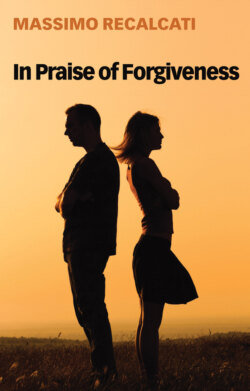Читать книгу In Praise of Forgiveness - Massimo Recalcati - Страница 12
Two Lies for Our Time
ОглавлениеOur time is built upon two fundamental lies about the nature of human beings. The first sees them as independent, free, autonomous, free from symbolic debts to the Other from which they hail. This is the narcissistic lie that feeds the individualistic cult of one’s own image and that, in turn, lays the basis for the fantasy of liberty and self-generation, the ideal of making a name for oneself without passing through the Other.
The second lie exalts the New as the guiding principle in the life of desire. This lie maintains that goodness, salvation and satisfaction reside in what we do not yet possess: in the new object, the new partner, the new sensation. From this comes a purely nihilistic version of desire, which works to breathlessly pursue that which, in reality, is destined to always be lacking.10
These two great lies of our time are bound together, reinforcing one another. Making a name for oneself without passing through the Other – misrecognizing the symbolic debt that ties us to it – feeds a purely perverse version of freedom as being able to do exactly as we please. The crazed racing of desire between one object and the next seems to therefore take on the traits of a genuinely collective hallucination. Desire is pulled like a magnet towards the new object, the new sensation, the new encounter, the new love. Goodness is never found in what we have but always deferred, to be found in that which we do not yet possess. And it is precisely here that the machine of the capitalist discourse finds the principle of its own function: not to meet needs but to transform them into pseudo-desires that are impossible to satisfy and that, precisely because of this impossibility, appear to be perennially enticed by the siren song of the New Object. This is the hyper-modern version of the capitalist machine that carries with it the absence of care for what we have and the compulsive urge to reach that which we lack, reducing lack to a void that yearns mindlessly to be filled, though this is, in reality, always deferred.11 Total satisfaction is postponed in a beyond that reveals itself to be inaccessible. So boredom sets in even more quickly, living off relationships like a parasite, feeding the unsatisfied urge towards that which we do not have. This framework obviously also has an impact on loving bonds, with devastating and, paradoxically, illusionistic consequences. Isn’t this perhaps the radical disenchantment that, as we have seen, reduces the kiss to hygienic safeguarding, and falling in love to an onslaught of dopamine destined to rapidly run out, before creating a new form of enchantment? The hypnotic suggestion provoked by the New turns love that lasts, love that wants to be forever, into nothing more than a meaningless word, or worse, an advertising slogan. Shouldn’t we then think today that the great illusion is no longer that of an everlasting love, but the destruction of love as an effect of the exaltation of a freedom made of nothingness? And if this were the case, would love that refuses to retreat when faced with commitment, at risk of absolute exposure, not be a unique point of resistance to its cynical liquidation as promoted by modern cynicism?
